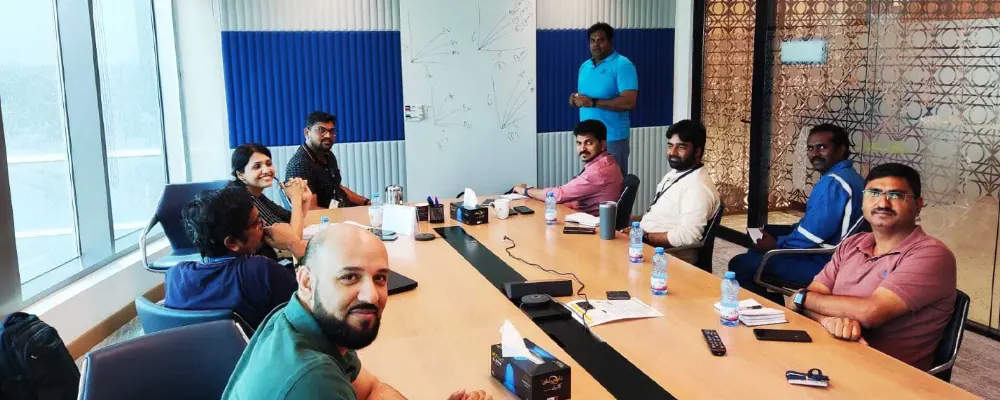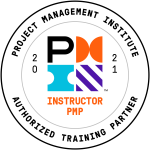Taking a project management professional course in Qatar, can be beneficial for individuals looking to enhance their project management skills and advance their careers in the field. Please look at the below lines, which help you to understand the Project Management Professional Course and its knocking door opportunities for your career growth.
Project Management Professional Course (PMP):
Offered by the Project Management Institute (PMI), the project management professional certification is globally recognized and highly respected. It validates your knowledge and experience in project management, including areas such as project initiation, planning, execution, monitoring, and closing. Project Management Professional course is sought after in various industries.
Project Management Professional Course Eligibility Requirements :
To be eligible for the Project Management Professional certification offered by the Project Management Institute (PMI), you must meet certain requirements. The eligibility criteria for the PMP certification in Qatar are as follows:
Education:
You must have a secondary degree (high school diploma, associate’s degree, or global equivalent) or a four-year degree (bachelor’s degree or global equivalent). The specific educational requirement depends on your level of formal education:
Secondary Degree:
You must have a minimum of five years (60 months) of non-overlapping project management experience, with at least 7,500 hours leading and directing projects, and 35 contact hours of project management education.
Four-Year Degree:
You must have a minimum of three years (36 months) of non-overlapping project management experience, with at least 4,500 hours leading and directing projects, and 35 contact hours of project management education.
Project Management Course:
You must have completed 35 contact hours of formal project management professional course. This requirement can be fulfilled through various training programs, courses, or workshops focused on project management. These educational hours should cover project management topics, processes, and best practices. It’s important to note that meeting these eligibility requirements is only the first step towards obtaining the PMP certification in Qatar. You will also need to pass the Project Management Professional certification exam, which assesses your knowledge and understanding of project management concepts, principles, and practices.
Project Management Professional Course Opportunities:
The Project Management Professional (PMP) course opens doors to numerous career opportunities. The latest PMI-commissioned talent gap analysis by Anderson Economic Group (AEG) points to outstanding opportunities in jobs and career growth for project managers within many developing countries studied. Through 2027, the project management-oriented labor force in seven project-oriented sectors is expected to grow by 33 percent, or nearly 22 million new jobs.
By 2027, employers will need nearly 88 million individuals in project management professional – oriented roles. The Middle East, China and India will represent more than 75 percent of the total project management-oriented employment.
On a global basis, certification also bolsters salary levels as shown in Earning Power: Project Management Salary Survey. The ninth edition of PMI’s biennial report found that, among those surveyed, salaries of practitioners with the Project Management Professional certification are 20 percent higher on average than those without a PMP®. With an expected increase in jobs, competitive salaries and the chance to make a difference, the future is bright for project professionals in Qatar and beyond.
Project Management Professional Course Description:
This Project Management Professional course will provide a detailed overview of Project Management Modules, focusing on preparing individuals for the Project Management Professional/ PMP certification exam. These 5 chapters will introduce you to the in-depth understanding of the tasks to perform throughout the project life cycle, aligning with the knowledge areas tested in the PMP exam.
Examination Content Outline (ECO):
Understand the in-depth knowledge of the Predictive and Agile Life Cycles.
Understand the role of a project manager in Changing the Environment.
Understand and apply Domain, Tasks & Enablers for a project throughout the project life cycle.
Teaching and Learning Methodology:
A combination of lectures, discussions, exercises, and cooperative learning will be used to prepare candidates for the PMP exam. Active learning will focus on discussions based on trainee project scenarios related to the application of qualitative and quantitative methods that will facilitate decision-making in project management problems in both local and international contexts, and will be assessed through standard structured response questions. Finally, a summative comprehensive assessment at the end of the Project Management Professional course will evaluate comprehension of the core concepts, including those relevant to project management professional certification.
Student Learning Resources:
PMI Authorized Exam Preparation Training Material (Based on current examination version – 2020 Release)
PMBOK® Guide, 6th & 7th Edition. Published by the Project Management Institute, USA
Agile Practice Guide
Ancillary Materials / Flash Cards/ PPT Slides/Rita Mulachy Project Management Preparatory – Rita Mulachy’s RMC Based on the 10th Latest edition
1800 Cloned Questions and Answers with explanations.
Mock-up Software
Recorded Video Session after each class completion through we transfer files



